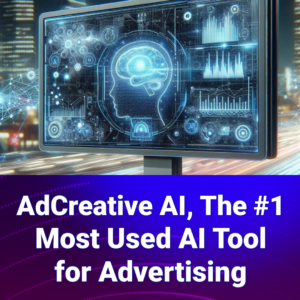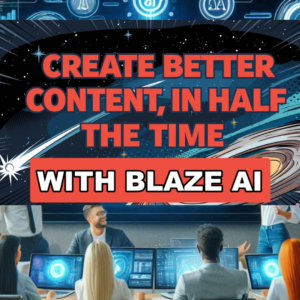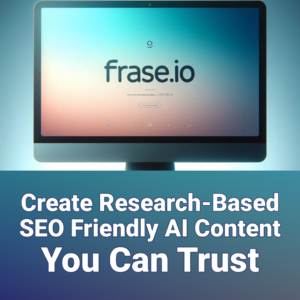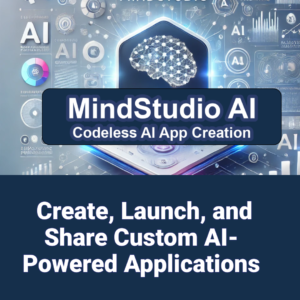SearchGPT is a smart AI tool that is changing digital marketing. It uses machine learning and natural language processing to give businesses deep insights into what customers want. This helps marketers create better and more personalized marketing plans, which leads to higher engagement and more sales.
SearchGPT works by looking at a lot of data in real-time. This means businesses can quickly change their marketing plans based on what’s happening right now. In today’s fast-paced world, where customer preferences can change quickly, this is very important. By understanding these changes as they happen, businesses can stay ahead and deliver content that their audience will love.
Transforming Consumer Engagement
Real-Time Data Processing
One of the best features of SearchGPT is its ability to process data in real-time. In the digital age, data is created very quickly, and businesses need to analyze this data fast to stay competitive. SearchGPT is great at this because it provides real-time insights that allow businesses to quickly change their marketing plans.
Real-time data processing is especially important for engaging with customers. By understanding how customers are interacting with their brand right now, businesses can quickly respond to any changes in behavior. For example, if a marketing campaign is not doing well, businesses can quickly find out why and make changes to improve it.
Also, real-time data processing helps businesses deliver more timely and relevant content to their audience. By analyzing data as it is created, businesses can find trends and patterns that can guide their content strategy. This ensures that the content they deliver is always in line with what their audience is interested in.
Precision Targeting and Personalization
SearchGPT helps improve marketing strategies by allowing precise targeting and personalization. Today’s consumers expect personalized experiences, and businesses that don’t provide these experiences risk losing their audience. SearchGPT helps businesses meet these expectations by giving deep insights into customer behavior.
By understanding customer behavior in detail, businesses can create highly targeted marketing campaigns. For example, SearchGPT can analyze data to find specific groups of people who are more likely to be interested in a product or service. This allows businesses to tailor their marketing messages to these groups, increasing the chances of engagement and sales.
Case Studies of Successful Campaigns
Many businesses have successfully used SearchGPT to improve their marketing campaigns. These case studies show how the technology can be used in real life and its impact on campaign success and return on investment (ROI).
One example is a retail company that used SearchGPT to understand customer preferences. By knowing what their customers wanted, the company was able to create personalized marketing messages that resonated with their audience. As a result, they saw a big increase in engagement and sales.
Another example is a travel company that used SearchGPT to find trends in customer behavior. By analyzing data in real-time, the company was able to adjust their marketing strategies to match the current interests of their audience. This led to a higher conversion rate and happier customers.
Overcoming Challenges in Digital Marketing
Addressing Data Overload
In the digital age, businesses are flooded with data. From social media interactions to website analytics, the amount of data can be overwhelming. One of the biggest challenges in digital marketing is managing this data overload and finding useful insights from it. This is where SearchGPT comes in.
SearchGPT helps businesses manage data overload by filtering and analyzing relevant information. Instead of being overwhelmed by the sheer volume of data, businesses can focus on actionable insights that can guide their marketing strategies. This not only saves time but also ensures that marketing efforts are more targeted and effective.
Moreover, SearchGPT can find patterns and trends in the data that may not be immediately obvious. By uncovering these hidden insights, businesses can gain a deeper understanding of their audience and make better decisions. This level of analysis was not possible before, but with SearchGPT, it is now a reality.
Delivering Value-Driven Content
Meeting customer expectations requires delivering value-driven content. In today’s digital world, consumers are bombarded with content from all directions. To stand out, businesses need to provide content that is not only relevant but also valuable to their audience. SearchGPT helps businesses do just that.
By analyzing customer behavior and preferences, SearchGPT helps businesses understand what their audience is looking for. This allows them to create content that addresses the needs and interests of their audience, ultimately delivering more value. Whether it’s blog posts, social media updates, or email newsletters, the content created with the help of SearchGPT is more likely to resonate with the audience.
Tools and Techniques
There are various tools and techniques that businesses can use along with SearchGPT to improve their content delivery. These include content management systems, analytics tools, and customer relationship management (CRM) platforms.
Content management systems (CMS) help businesses organize and manage their content better. By integrating SearchGPT with a CMS, businesses can ensure that their content is always up-to-date and relevant. Additionally, analytics tools can provide insights into how the content is performing, allowing businesses to make data-driven decisions.
Customer relationship management (CRM) platforms can also be integrated with SearchGPT to provide a more complete view of the customer journey. By combining data from various sources, businesses can gain a deeper understanding of their audience and create more personalized marketing campaigns.
The Future of AI-Driven Search
Continuous Advancements in AI
The future of AI-driven search is marked by continuous advancements. Emerging technologies and ongoing research will further enhance the capabilities of AI systems like SearchGPT, making them even more important to digital marketing.
One of the key areas of advancement is in the field of natural language processing (NLP). As NLP technology continues to improve, AI systems will become better at understanding and interpreting human language. This will enable more accurate and detailed insights into consumer behavior, allowing businesses to create even more personalized marketing campaigns.
Another area of advancement is in the field of machine learning. As machine learning algorithms become more advanced, AI systems will be able to analyze larger and more complex datasets. This will enable businesses to gain deeper insights into their audience and make better decisions.
Integration with Emerging Technologies
The integration of SearchGPT with emerging technologies such as Extended Reality (XR) and Virtual Reality (VR) is on the horizon. These technologies will provide new ways to engage consumers and deliver immersive marketing experiences.
For instance, XR and VR can be used to create virtual showrooms or interactive product demonstrations. By integrating SearchGPT with these technologies, businesses can provide a more personalized and engaging experience for their audience. This not only enhances consumer engagement but also increases the chances of conversion.
Bridging Skills Gaps
As AI and emerging technologies evolve, there will be a need to bridge skills gaps. Training and development programs will be essential to equip marketing professionals with the knowledge and skills required to use these technologies effectively.
Businesses must invest in training programs that focus on AI and emerging technologies. This includes providing hands-on experience with AI tools like SearchGPT, as well as offering courses on data analysis and machine learning. By equipping their teams with the necessary skills, businesses can ensure that they are well-positioned to take advantage of the latest advancements in AI-driven marketing.
Leveraging SearchGPT for Business Success
Developing Best Practices
To fully use the potential of SearchGPT, businesses must develop best practices for its implementation. This includes setting realistic expectations, defining clear objectives, and continuously refining strategies based on performance data.
One of the key best practices is to start with a clear understanding of the business objectives. This involves identifying the specific goals that the business wants to achieve with SearchGPT, such as increasing engagement or improving conversion rates. By having a clear understanding of the objectives, businesses can create more targeted and effective marketing strategies.
Another best practice is to continuously monitor and analyze performance data. This involves tracking key performance indicators (KPIs) and metrics to understand how the marketing campaigns are performing. By analyzing this data, businesses can identify areas for improvement and make the necessary adjustments to their strategies.
Measuring Impact and Success
Measuring the impact and success of AI-driven marketing campaigns involves tracking key performance indicators (KPIs) and metrics. This data-driven approach ensures that businesses can quantify the effectiveness of their strategies and make informed decisions.
Some of the key KPIs to track include engagement rates, conversion rates, and return on investment (ROI). By tracking these metrics, businesses can understand how their marketing campaigns are performing and identify areas for improvement. Additionally, businesses can use A/B testing to compare different strategies and determine which one is more effective.
Customer-Centric Outcomes
Ultimately, the goal of leveraging SearchGPT is to achieve customer-centric outcomes. By focusing on the needs and preferences of consumers, businesses can create more meaningful and impactful marketing campaigns.
One of the key ways to achieve customer-centric outcomes is to listen to the voice of the customer. This involves gathering feedback from consumers and using this feedback to inform marketing strategies. By understanding what their audience wants, businesses can create content and campaigns that resonate with their audience.
Another way to achieve customer-centric outcomes is to deliver personalized experiences. By leveraging the insights provided by SearchGPT, businesses can create highly targeted and personalized marketing campaigns. This not only enhances consumer engagement but also increases the chances of conversion.
Conclusion
Recap of Key Points
In summary, SearchGPT is a transformative technology that offers significant benefits for digital marketing. Its ability to process real-time data, enhance targeting and personalization, and address ethical considerations makes it a valuable tool for businesses.
Final Thoughts
As AI continues to evolve, the potential for technologies like SearchGPT to revolutionize digital marketing will only grow. By staying ahead of these advancements and adopting best practices, businesses can ensure they remain competitive and deliver exceptional value to their customers.















